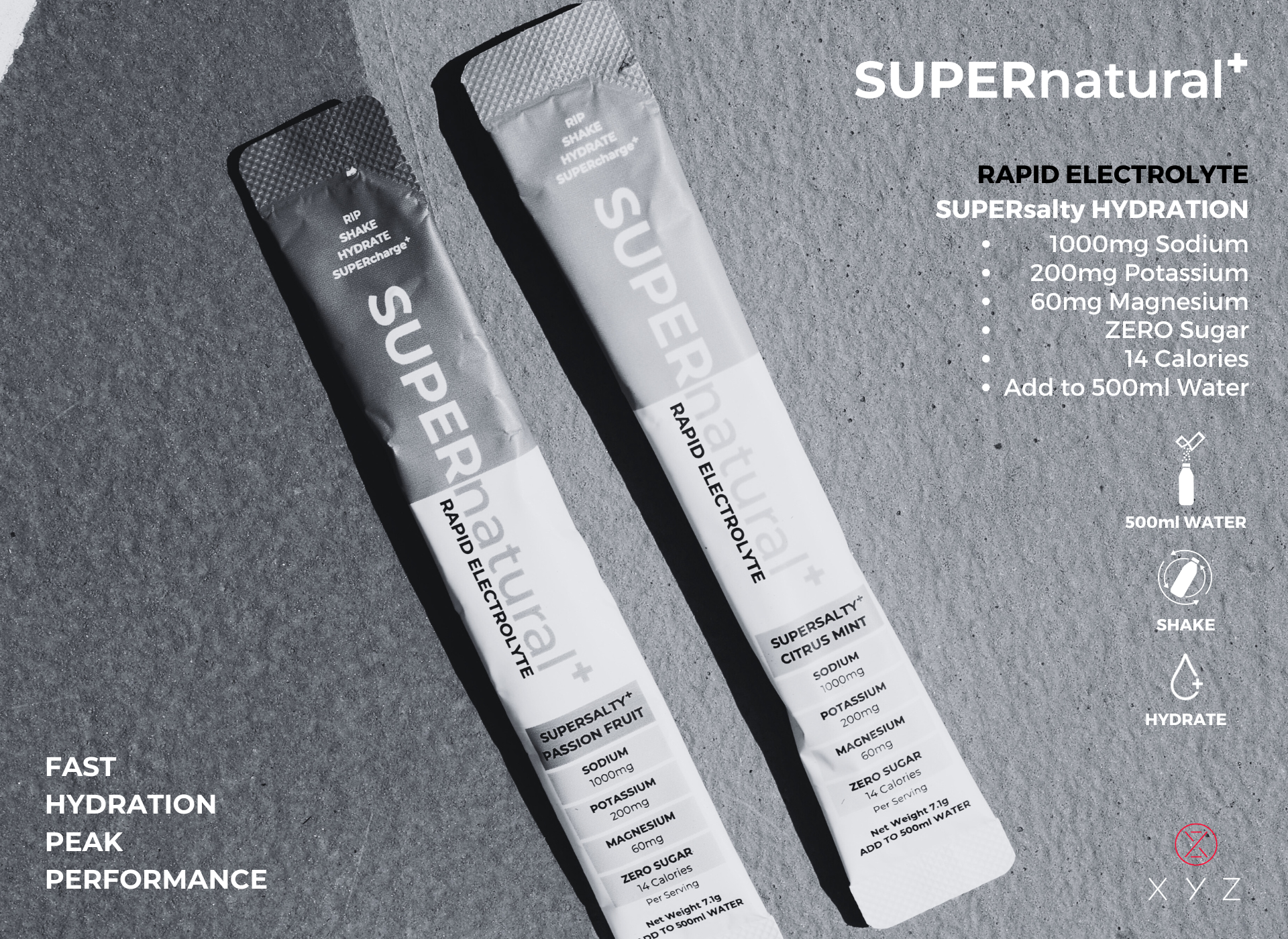
Have you ever wondered why it's important to stay hydrated and replenish electrolytes after a rigorous workout?
When you exercise, you don't just lose water, you lose vital nutrients & minerals. To properly rehydrate, your body requires more than just water - it needs essential electrolytes.
Electrolytes, such as sodium, play a crucial role in keeping our bodies functioning smoothly, particularly during intense physical activity when we sweat profusely. Depending on the intensity of your workout, you can lose a lot of electrolytes, especially sodium, through sweat—up to 1,000 mg or more per hour.
Now, after giving it your all during your workout, it's essential to replenish those electrolytes to prevent dehydration and muscle cramps. Fortunately, you don't have to rely solely on sports drinks loaded with refined sugar. Nature provides us with plenty of electrolyte-rich options like fruits, veggies, nuts, seeds, and coconut water—all without the added sugars but if you want to replenish your electrolytes rapidly use our SUPERsalty performance electrolytes which contain 1000mg of sodium, 200mg of potassium and 60mg of magnesium and none of the nasties like refined sugar.
But how do you know if you need electrolytes? Your body often gives you clues, such as muscle cramps, fatigue, or feeling a bit dizzy. If you notice any of these signs, it's a good idea to replenish your electrolytes promptly!
Of course, before making any significant changes to your diet, it's wise to consult with a healthcare professional, especially if you have any health concerns or take medications.
FAQ
Why should I take electrolytes:
Electrolytes are essential for several reasons:
Hydration: Electrolytes help regulate fluid balance in the body. They assist in maintaining proper hydration levels by ensuring that fluids are distributed efficiently within cells and tissues.
Reduced risk of cramping: Insufficient electrolyte levels can lead to muscle cramps, particularly during exercise or in hot environments. Supplementing with electrolytes can help prevent cramping and promote overall muscle function and comfort.
Energy production: Electrolytes are involved in the production of adenosine triphosphate (ATP), the primary energy currency of cells. They facilitate the transfer of nutrients into cells and help support metabolic processes necessary for energy production.
Improved exercise performance: Replenishing electrolytes lost through sweat during intense physical activity can help prevent dehydration, maintain stamina, and improve exercise performance.
Prevention of heat-related illnesses: Electrolytes help regulate body temperature by facilitating sweating and heat dissipation. Adequate electrolyte intake can reduce the risk of heat-related illnesses such as heat exhaustion and heatstroke, especially in hot and humid conditions.
What does sodium do to my body?
Fluid balance: Think of your body like a water balloon. Sodium helps keep the right amount of water inside and outside of your cells. It's like a bouncer at a party, making sure there isn’t too many people or too little, nothing worse than a busy club or an empty one. Cells are the same. When there's enough sodium around, water sticks around too, keeping you hydrated and preventing dehydration. The fluid balance helps with rehydration, prevents cramps, and improves recovery.
Nerve function: Imagine your nerves as messengers sending texts between your brain and the rest of your body. Sodium is like the electricity that powers these messages. It helps the messages zip along smoothly so your brain knows what's going on and can tell your body what to do. Ever had a bad hangover and move a bit slower? Well, that's because your nerve function is lacking sodium, so messages just aren't getting across quickly. This is an extreme situation, but if you are fit and healthy, the improvement of nerve function allows for your body to respond better in various aspects such as:
- Muscle Contraction
- Cardiovascular Response
- Respiratory Response
- Temperature Regulation
- Coordination and Balance
- Pain Perception
Muscle function: Your muscles are like rubber bands that can stretch and contract. Sodium and potassium are like the buttons you press to make the rubber bands move. Sodium is the button that tells your muscles to contract (get shorter) and relax (get longer). Without enough sodium, your muscles might not work properly, like a remote control with dying batteries. This is critical during workouts and also in recovery.
So get your electrolyte levels up to improve Fluid Balance for your cells, Improve Nerve Function, and Muscle function.
CREDIT: SUPERnatural+